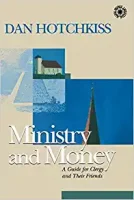There’s no reason to expect scientists to be especially good at telling people what to do about an epidemic. The Centers for Disease Control and Prevention (CDC) has done a great job of learning about viral transmission and evaluating treatments and vaccines. In front of the microphones, they’ve scored a B+ at best. Their main expertise is in health science, not in talking to the public. The opposite should be true of religious leaders.
We may or may not know much about science, but we are—or should be—specialists in saying things to influence the thinking and behavior of human beings. Like the CDC, we have a certain amount of authority to make rules, but mostly we rely on voluntary cooperation. And like the CDC, most of us are trying to lead people whose knee-jerk reaction to authority is to resist it—especially if they might not get what they want.
Many things have gone wrong about the government’s response to COVID-19, starting with the Trump administration’s cynical attempts to polarize the public. When President Biden said he would “follow the science,” that was a good sign, but also a bit troubling. Science can provide clarity about what works, but it cannot answer every question leaders must address.
The CDC’s mistakes
Relying too much on experts at the CDC has turned out to have downsides of its own. Remember when they told us masks did not prevent disease, when they meant they should be reserved for frontline workers? And when they said that only the unvaccinated had to mask? It might have made sense scientifically, but it’s hard to believe anyone imagined it would work.
This fall it appears that Covid will be sticking around for a while, and its psychological aftereffects may linger even longer. To earn people’s trust, leaders must communicate with skill, adopt clear policies, and follow them with evenhanded firmness. It’s time, I think, for a review of the basic principles of how to communicate about controversial issues and craft policies that work.
Communicating about hard decisions
Many congregations are uncomfortable setting and enforcing rules. But I have found that even the most rebellious congregations willingly accept rules when their leaders follow each of these communication steps:
- Say, well in advance, what questions are under discussion. This is the hardest step because it requires leaders to go public with important questions for which they don’t have answers. Most leaders wait until they make decisions before saying anything, so they can announce them as a finished package. Leaders who feel under pressure to be “experts” are especially hesitant to appear in public in a state of doubt. It takes a courageous leader to communicate before making a decision—framing questions clearly and pointing to criteria they think will shape the outcome.
- Say who will decide and when. Leaders undermine their own authority by failing to admit they have it. Consensus-seeking—at best a wonderfully unifying norm—can be a way of shirking the responsibility to act. Decisions always get made somewhere. If top leaders duck them, they get made by fiefholders, tradition, or anyone who seizes the baton and runs with it.
- Tell members when and how they can have input. For important choices, it’s worth holding multiple gatherings for information and discussion. I have two suggestions for making your “town meeting” a success: Share information at the outset, taking no more than one-fifth of the time. And soon after the meeting, say what you think you heard—not only to those who attended, but to everyone. Closing the loop this way builds trust and may move others to chime in.
When leaders communicate these three things honestly and frankly, they often are surprised at how well even cranky congregations accept—or even welcome—their policy decisions.
What Makes a Policy a Policy?
Of course, the policies themselves must be well-crafted. To write workable policies, leaders need to know and implement the following key elements that make for a sound policy on any subject:
- Policies control many decisions over time. The time element distinguishes a policy from actions that control specific instances. A board-level policy on Covid, for instance, should not make rules for this Sunday. It should say who will be responsible for making which decisions and establish principles, criteria, and standards to guide them.
- Policies are written. In too many congregations, the word “policy” is used for any practice that has become a habit. A true policy is put in writing and adopted formally by the governing board, the head of staff, or some other source of legitimate authority. Every action of a board goes into its minutes; policies should also go into a policy book. Keeping this distinction clear avoids the common problem of assuming that one-off decisions necessarily create a precedent that must be followed.
- Policies enable decisions to be made away from the board table. Many boards have “policies” that set criteria for renting space to outside groups. Some of those policies defeat themselves by saying, “All rentals must be approved by the board.” By my strict definition, this is not a policy at all. If the board has done a good job of setting limits and giving guidance, it should be able to let someone else make day-to-day decisions.
Covid policies need to be smart policies. Rules should be crafted so they are enforceable and easier to follow than to flout. If you’re going to say people must be vaccinated, you need to ask people to affirm (or even prove) that it’s so. Otherwise, some people will cheat and many more will lose respect because they assume others are cheating.
Finally and most important, leaders need to stand behind their policies: “We will consider input, learn what science has to teach, reflect and pray and sleep on it. And then we will decide and be accountable for our decision.” Even in an epidemic, science can inform, but only leaders lead.
Dan Hotchkiss has consulted with a wide spectrum of churches, synagogues, and other organizations spanning 33 denominational families. Through his coaching, teaching, and writing, Dan has touched the lives of an even wider range of leaders. His focus is to help organizations engage their constituents in discerning what their mission calls for at a given time, and to empower leaders to act boldly and creatively.
Dan coaches leaders and consults selectively with congregations and other mission-driven groups, mostly by phone and videoconference, from his home near Boston. Prior to consulting independently, Dan served as a Unitarian Universalist parish minister, denominational executive, and senior consultant for the Alban Institute.



